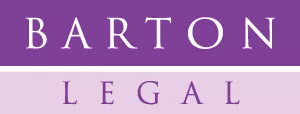What is FIDIC?
FIDIC is a French acronym meaning the 'International Federation of Consulting Engineers'.
It is an organisation with the aim of providing a voice for consultant engineers, since its creation in 1913.
Today FIDIC represents 40,000 professional firms, and advocates for sustainability, quality and integrity in everything it does.
Why use FIDIC?
The core value proposition of FIDIC contracts is to balance obligations fairly and ensure risks are assigned to the appropriate party.
This is of course dependent on the delivery system chosen for the particular project. For example, by definition, FIDIC Design-Build conditions of contract, i.e. the 'yellow' book, allocates more risk to the design-builder since they are assigned more risk factors on the project.
Problems which may arise when using FIDIC contracts:
FIDIC understands that users have their own preferences and sometimes legal requirements, which they need to put into particular conditions to suit their specific needs.
However, over the years, it has been observed that problems frequently arise when the FIDIC conditions of contract are substantially modified. In such cases, the heavily-amended draft might not even be considered a FIDIC contract.
To address this issue, FIDIC issued guidance to its users called the 'Golden Principles'.
The Golden Principles:
FIDIC's Golden Principles set out the essential characteristics of its general conditions of contract that should not be amended if the contract is to be regarded as a genuine FIDIC document.
- The duties, rights, obligations, roles and responsibilities of all the contract participants must be generally as implied in the General Conditions, and appropriate to the requirements of the project;
- The Particular Conditions must be drafted clearly and unambiguously;
- The Particular Conditions must not change the balance of risk/reward allocation provided for in the General Conditions; and
- All time periods specified in the contract for contract participants to perform their obligations must be of reasonable duration.
Unless there is a conflict with the governing law of the contract, all formal disputes should be referred to a Dispute Avoidance/Adjudication Board (or a Dispute Adjudication Board, if applicable - here for a provisionally binding decision as a condition precedent to arbitration, such as in accordance with FIDIC 2017 sub clause 21.1).
Credentialling:
FIDIC have been strengthening their certification programme consistent with an emphasis on quality. Currently, they have programmes in place to certify Adjudicators, trainers, Consulting Engineers, future leaders and Contract Managers.
The FIDIC certified Consulting Engineer Program is a relatively new and rigorous programme which was piloted in China, and expected to be rolled out globally via member associations over time.
The programme reflects efforts to assure owners that engineers with that certification have received by examination, training and experience, education in the areas covered in the FIDIC body of knowledge, such as project management, contracts, procurement and integrity.
It is not a "technical programme" in that it is not related to how to, for example, design a water treatment plant or a bridge etc, but rather, there as a requirement for entrants to have graduated from a recognised engineering university.
FIDIC Committees:
FIDIC activities are organised and managed by specialised committees, often comprising board level, geographic and working standards committees who are appointed by the FIDIC Board.
FIDIC welcomes groups of diverse volunteers who are experienced professionals to participate in relevant committees. Information on all FIDIC committees can be found on their website – here.
This topic was discussed in our webinar 'An Audience with William Howard and Claudia Salomon' in January 2021. Click here to view the webinar and presentation.
The content of this article is intended to provide a general guide to the subject matter. Specialist advice should be sought about your specific circumstances.

